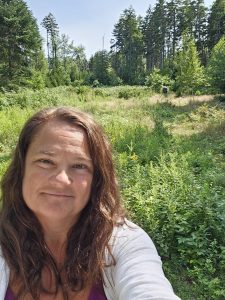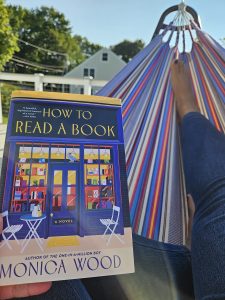Mentor Corner: Karen Boss

Senior Editor, Charlesbridge Publishing
What was your first job in publishing?
My first job in publishing was as an Editorial Assistant at Charlesbridge. I’ve been here for twelve and a half years and I’m now a Senior Editor. Most people who went the traditional route from an undergrad or a Master’s program into an Editorial Assistant position, and then spent 12 years in that career would probably be around 35-years-old. I’m fifteen years older than that because I had two careers before this.

What was your career path like getting to your current role?
I got a Master’s degree in higher education and student development, which led me to work on college campuses, mostly in student activities—clubs and organizations, student government, first-year orientation, and a lot of leadership education. I did that for about fifteen years on several campuses across the country, and then I burned out of that field.
I then took those skills and transitioned them over to a nonprofit career where I worked at a few different organizations doing communications, program management, and grant writing, that kind of stuff. I also hired and supervised six AmeriCorps members for several years and was the Operations Director at a small nonprofit.
Along the way, I had been paying attention to and was intrigued by kid’s books. I decided I wanted to get a Master’s degree in children’s literature. I was pretty sure in the secret recesses of my mind that I wanted to be in editorial, but I didn’t tell anyone that. In all the living of life I had done, I left Boston before making my way back, and I didn’t want to have to move to New York. So I wasn’t sure if editorial would be an option, and I was open to different avenues. I got lucky and ended up in an editorial position in Boston. I look back at it sometimes and wonder if that Charlesbridge job hadn’t been open, what would I have ended up doing? Whatever that would’ve been, would I have stuck with it or tried to make my way over to editorial?
Young people often freak out about choosing what they’re going to do for work and having to stick with it. Statistics show that’s not as true as we think, and people tend to change jobs several times. While drastic field changes can be less common, the type of transition I made isn’t as rare as we think. It involves taking an inventory of what you know how to do and figuring out what else you can do that uses that skill base. I think I’m a strong argument for a liberal arts education because if you can read, write, pull apart information, be analytical, thoughtful, creative, and work well with other people, that can lead to a lot of different work options. I studied communications and journalism as an undergrad, which would’ve parlayed directly into editorial really well. Sometimes, I think that I could be further along in my career or have made a bigger impact by now if I had figured out that I was supposed to do this work right out of undergrad. I think about all of the books I could’ve made in that time, but then I think that all those other skills and experiences I have make me a better editor. And I always remind myself that Julia Child didn’t really start cooking until she was 40. (If you don’t know her, Google her up! A fascinating woman with an amazing life.)
Before publishing, I kept leaving jobs after three years. The first year was for learning, the second year was for making changes and improvements, and the third year was for codifying those changes. After that, I would get bored and leave. When I started working in publishing, I didn’t have that feeling. The three-year mark came and went, the five-year mark came and went, and I still didn’t feel it. Even though you have to do some similar things for every project—like, say, TI sheets—nothing is ever the same because every book and every creator is so different. In publishing, what I love is that almost everything is novel, there’s always some new challenge to figure out, and I can’t imagine ever getting bored. I know so many people my age who have been in the same field for a long time who look at their jobs as what they do to put a roof over their heads, and they don’t draw any sort of creative energy from it. Some people feel trapped, so I really appreciate the novelty and creativity in publishing.
What advice would you give to those who are either just starting out or are in their first few years in publishing?
My first piece of advice is something I’ve always told people. I think it’s incredibly important for people to be resourceful. I think it’s the number-one thing to make you stand out as an employee and as a team member. If you’re ambitious, then you have to figure out how to be resourceful and hone that skill. What I mean is, don’t ask questions that you could otherwise find answers to very simply. There’s a huge difference between spinning your wheels trying to figure something out that you’ll never be able to on your own, versus having a wealth of information at your fingertips without knowing how to find it. All the information of the world is available in the palm of our hands, literally. If you’re a resourceful person who knows how to find information and when you should find it, it affects what you’re able to accomplish—whether it’s to make your own life easier or to influence someone else’s decision. It’s one thing to give your perspective about something, but backing it up with information can help you achieve goals. How much you can find out for your boss before they even know they need that information, can matter in your progression through your career. If you don’t know how to be resourceful, try to find someone in the workplace who can show you.
My other piece of advice is that there’s a fine line between being a team player or a good employee and knowing when to rock the boat. Those things are not mutually exclusive, but I think people often find it difficult to employ both. It’s a skill that takes time to hone. If the people above you driving the boat don’t want it rocked, then you have to figure out how to make them realize that change is needed, and also do it in a way that they don’t stop listening because they think you’re a rabble-rouser. I’m clear where I come from generationally—I’m a true Gen Xer who learned to exert change in quieter ways. I realize that this advice might sound old-school, but I also feel there’s wisdom in building little fires. Big fires can be put out in a concentrated effort and moved on from quickly, as opposed to little fires that draw more careful and consistent attention. There are many places that aren’t willing to implement change, and it can be heartbreaking to stick it out in organizations that don’t support thoughtful perspectives. Deciding when to stay and when to go can be very challenging.
What are some recent projects that you’re proud of?
I’m thrilled by the number of Native titles that Charlesbridge has published over the last several years, and that I’ve edited a lot of those. I’m really glad to not only bring this underrepresented population’s voices to the market, but also that folks have made the choice to put trust in me within a system that is incredibly white and historically unwelcoming to that group.
What are you currently inspired by?
My inspiration is really where I’ve been living for the past year. I moved to Maine last fall and now get to have the ocean surrounding me on an island, which has reenergized me in a million different ways. One of those is my ability to stay focused and do really good creative work.

What are your current favorite reads?
I’ve been in a book club on the island for a year now, and we’ve read some great books. I read a lot of adult stuff in my own time since I read so much children’s lit at work. The Frozen River by Ariel Lawhon is historical fiction that takes place in Maine after the Revolutionary War, and it’s really about being a woman. Another favorite is How to Read a Book by Monica Wood, which is a quick read that also takes place in Maine, and it’s really about relationships and figuring out who you are. They’re very different, but both are indicative of what’s happening in the world right now and what people are clamoring for. We’re asking: Who am I? Who are we? What are we doing here on this planet? Those are questions I ask all the time, so I’m always intrigued when I read about other people’s explorations of those questions.
Check out more from the Early Career Committee on our blog.

